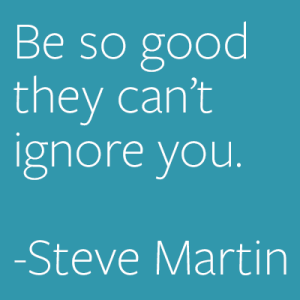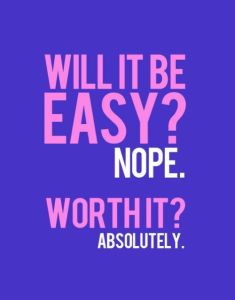 I am taking on a somewhat controversial topic. Not everyone sees this as necessary, and it’s not the most important thing you can do to promote your leadership. However, with so much at stake to keep library programs and librarians visible and vital, I believe we should use every tool available to us.
I am taking on a somewhat controversial topic. Not everyone sees this as necessary, and it’s not the most important thing you can do to promote your leadership. However, with so much at stake to keep library programs and librarians visible and vital, I believe we should use every tool available to us.
You know that you communicate a great deal without words. When you walk into a room, before you say anything, you have sent a number of messages. Some are totally unfair as people will make judgments based on arbitrary prejudices such as age, weight, and any number of other irrelevant criteria.
 In addition to visual clues, body language tells a lot about what you are thinking and how you are feeling. Arms crossed signals you are closed. Whether you look at people or away from them reveals how secure you are feeling. Tight lipped smiles shows you are hiding something or feel insecure. You make these decisions about others. They do the same about you.
In addition to visual clues, body language tells a lot about what you are thinking and how you are feeling. Arms crossed signals you are closed. Whether you look at people or away from them reveals how secure you are feeling. Tight lipped smiles shows you are hiding something or feel insecure. You make these decisions about others. They do the same about you.
How you dress also sends messages. I go to every ALA and AASL Conference and I am always amazed at how easy it is to distinguish between the vendors and the librarians in the halls and elevators. I know many librarians feel they can relax and dress solely for comfort, but I have a feeling that many of them dress that way when they are in their schools.
 Look around your building. Notice how the teachers dress. Is there a difference between those who are well-regarded and others? The dress of the secretarial and clerical staff is rarely the same as what teachers wear. Paraprofessionals and aides mostly have their similar dress “code.” This is not a hard and fast rule. There are always exceptions, but in general this holds true.
Look around your building. Notice how the teachers dress. Is there a difference between those who are well-regarded and others? The dress of the secretarial and clerical staff is rarely the same as what teachers wear. Paraprofessionals and aides mostly have their similar dress “code.” This is not a hard and fast rule. There are always exceptions, but in general this holds true.
Now look at how administrators dress. Compare that with what you wear. Where are you on the scale? If you look like some of the less-regarded teachers you are opening yourself up to being ignored or not valued highly. If your clothes are similar to teachers who are highly regarded you are in a better position.
But you want more than that. You want to be viewed as a leader. Increasingly you will be in the presence of administrators. If you look as though you are one of them, you will be treated as though you are. It may seem shallow, but it’s effective.
I have known a few librarian leaders and one administrator who didn’t “dress for success” who are highly respected, but they are rarities. They are incredibly skilled at showing their worth and so were accepted by everyone for the leaders they are. You, on the other hand, may still be at a place where you want to prove yourself and emerge from how you are currently perceived.
Dressing for success is much discussed in the business world, but hardly ever mentioned in education. Indeed, in some corporations a person who is being primed for promotion to higher levels of management might be sent to a personal shopper to be able to present a more polished, successful appearance. Unlike the corporate world, in a school system, upgrading your wardrobe doesn’t mean you will be purchasing clothes with designer labels, but being mindful of the message you send with what you are wearing is important.
A reality check is necessary here. If you are at the elementary level, skirts and dresses for women and suits for men are impractical. You frequently get down on the floor to work with kids. However nice pant suits or their equivalent and ties and such for men are a subtle change that will be taken in subliminally as part of your message.
While you are unlikely to work on the floor with students in high school, the same suggestions can hold. Most important at any level is to feel comfortable with what you wear. Jewelry that is too flashy and earrings with long dangles are generally to be avoided as they are distracting.
 Shoes are another consideration. High heels for women are impractical unless you are very accustomed to moving with them on. Sneakers, on the other hand, need to be carefully thought out. Some are far too casual. Others might work depending on what the norms are in your building and district. Although it’s not fair, men are more easily able to get away with them.
Shoes are another consideration. High heels for women are impractical unless you are very accustomed to moving with them on. Sneakers, on the other hand, need to be carefully thought out. Some are far too casual. Others might work depending on what the norms are in your building and district. Although it’s not fair, men are more easily able to get away with them.
In becoming a leader, it pays to be mindful of things big and little. You show your leadership in what you do and how you are and that is what is most important. But you don’t want the small things to take away or diminish in any way from how you are perceived.
Are you mindful of how you dress? Do you think it matters in your building and district?
(EDITOR’S NOTE Based on a section of Hilda’s forthcoming book Leading for School Librarians: There is No Option.)













